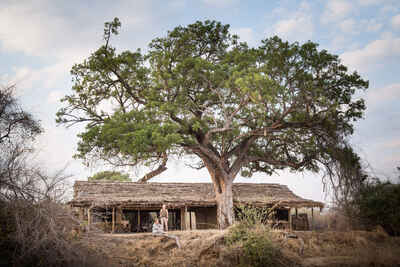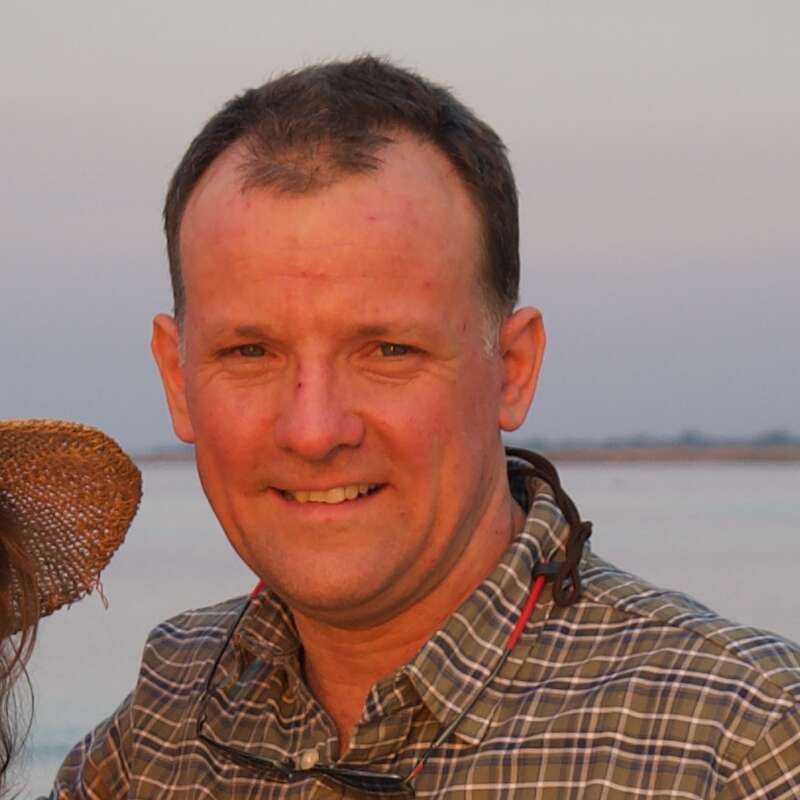About Kigelia Camp
Set on the banks above the Ifuguru sand river in Ruaha National Park, Kigelia is a tented camp that takes ...
... its name from the grove of sausage trees, Kigelia africana, where it nestles. With only six well-positioned tents, the camp aims to blend in with the surrounding bush, causing minimal environmental impact.
Kigelia Camp is a well-designed camp, and perfectly located for game viewing within Ruaha National Park. The area around camp is particularly good for wildlife, but the black cotton soils here mean their wet season closed period can be longer than some other camps in Ruaha.
Accommodation
7 tents
Children
Best for 12+
Open
June to March
Activities

4WD Safari

Birdwatching

Guided walking safari

Hot air ballooning

Night drive

Private activities
Traveller reviews of Kigelia Camp
37 real, un-edited reviews from Expert Africa's travellers.
Arrived 1 Nov 2024, 3 nights
"Kigelia Camp review"
Overall rating: Poor
Arrived 28 Aug 2024, 3 nights
"Kigelia Camp review"
Overall rating: Excellent
Arrived 8 Aug 2024, 4 nights
"Kigelia Camp review"
Overall rating: Good
Arrived 2 Jun 2024, 3 nights
"Kigelia Camp review"
Overall rating: Excellent
Arrived 3 Nov 2023, 3 nights
"Kigelia Camp review"
Overall rating: Excellent
Arrived 8 Oct 2023, 4 nights
"Kigelia Camp review"
Overall rating: Excellent
Arrived 24 Sep 2023, 3 nights
"Kigelia Camp review"
Overall rating: Excellent
Arrived 12 Feb 2023, 4 nights
"Kigelia Camp review"
Overall rating: Excellent
Arrived 20 Aug 2021, 4 nights
"Kigelia Camp review"
Overall rating: Good
Arrived 15 Sep 2019, 4 nights
"Kigelia Camp review"
Overall rating: Excellent
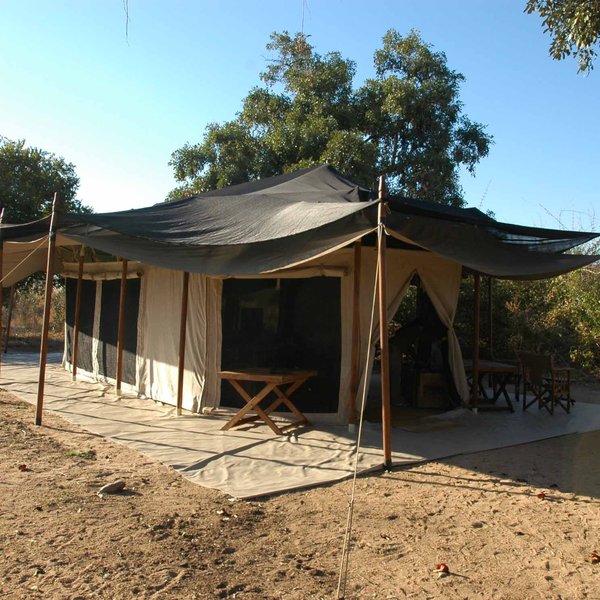
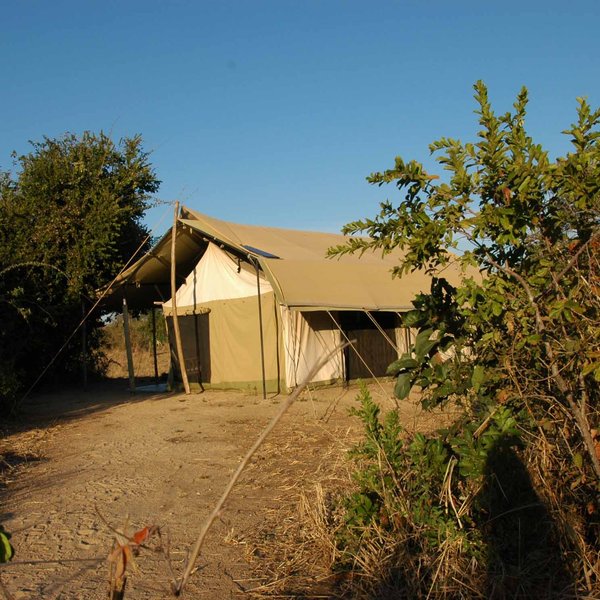
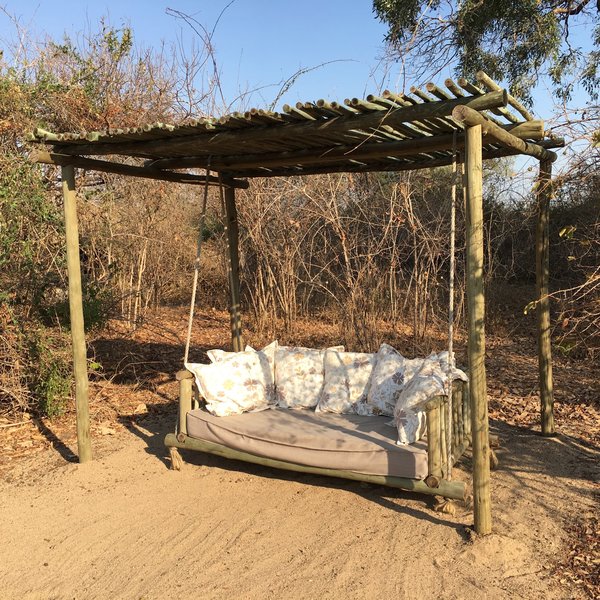
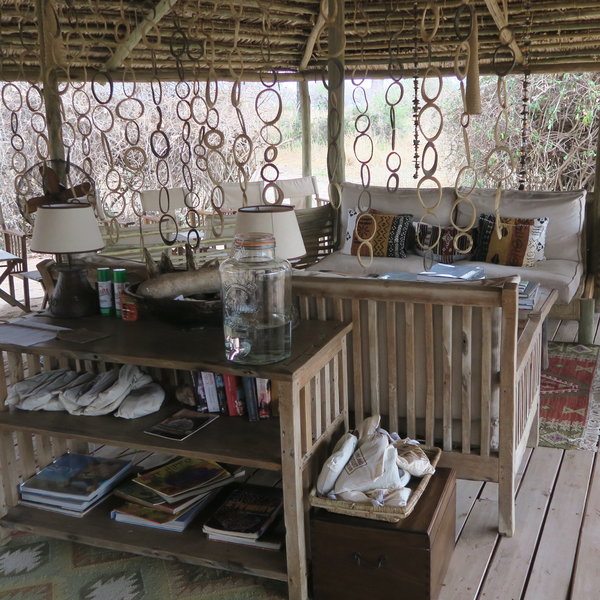
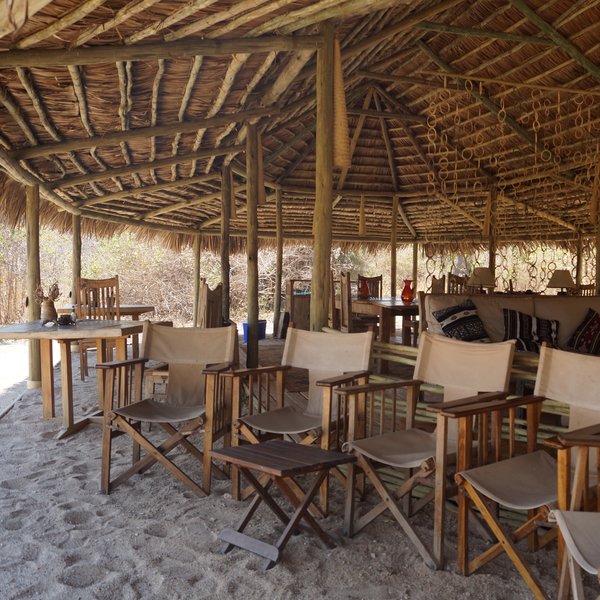
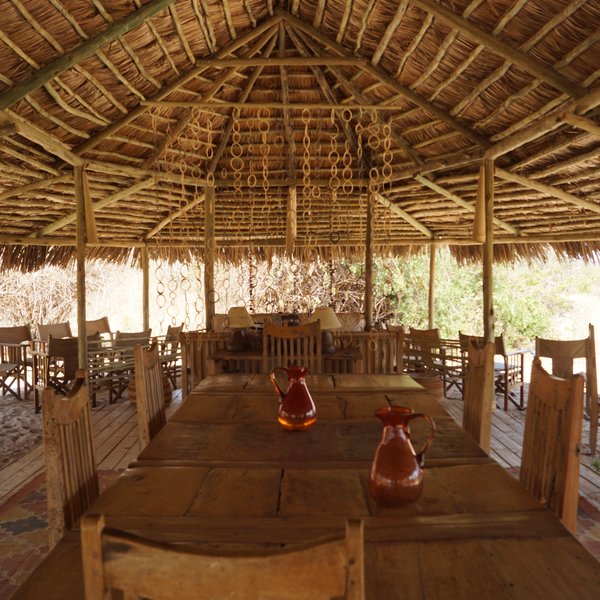
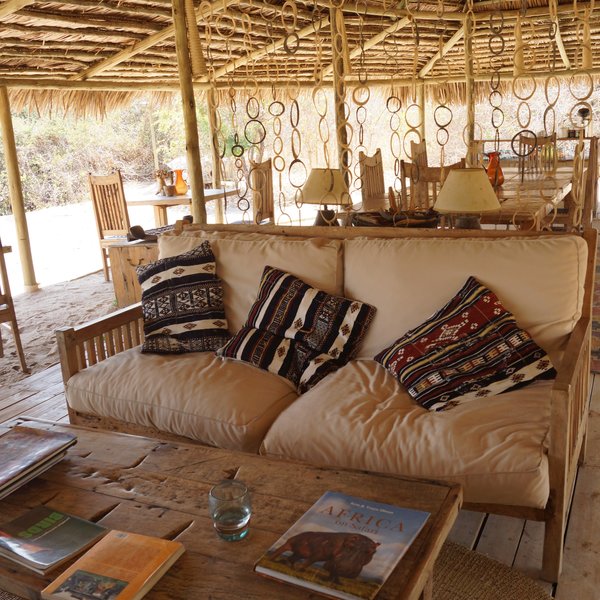
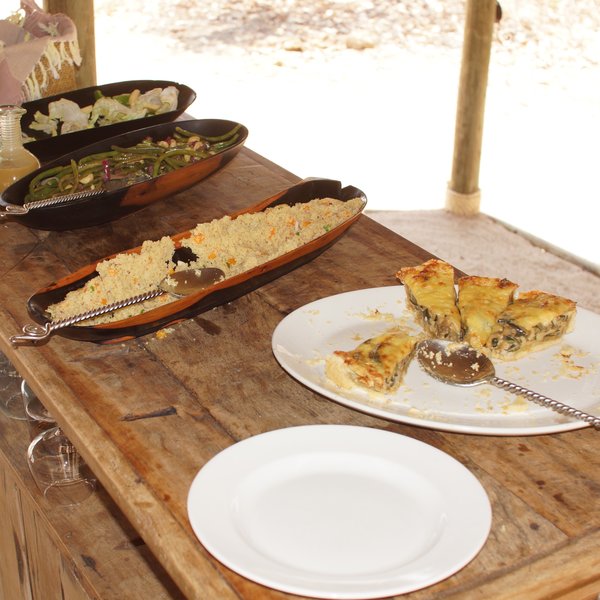
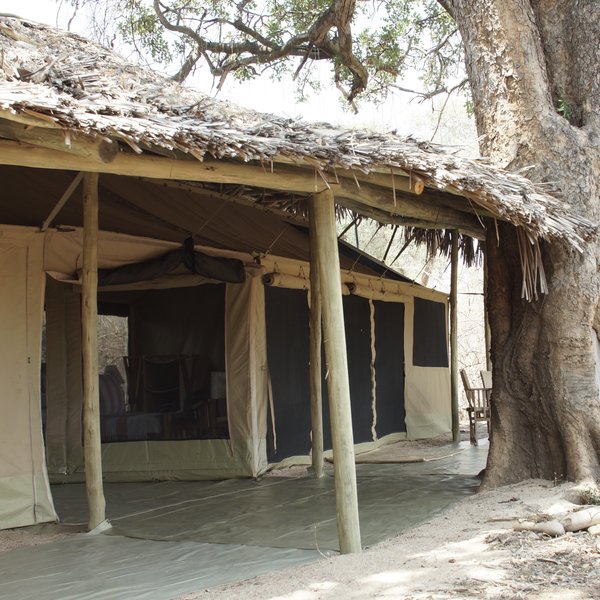
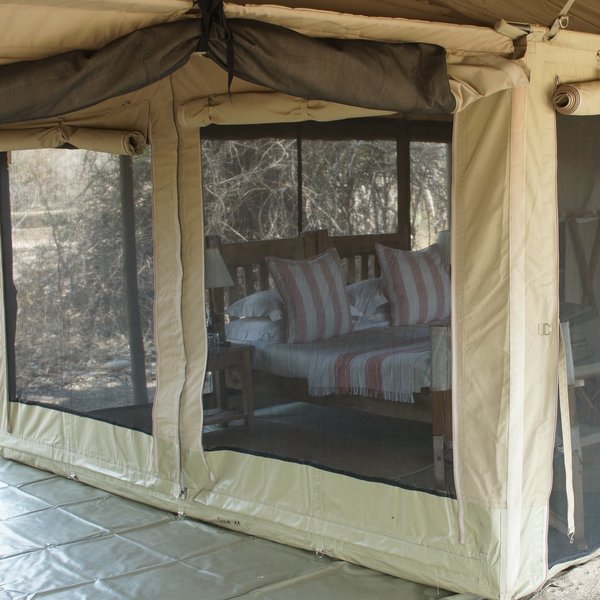
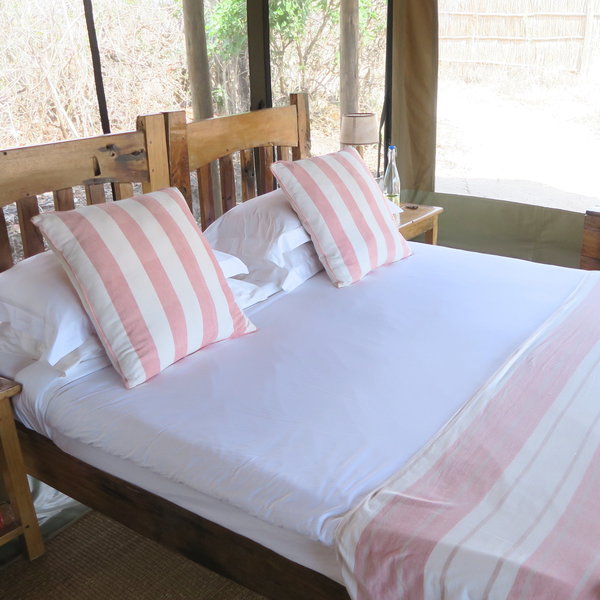
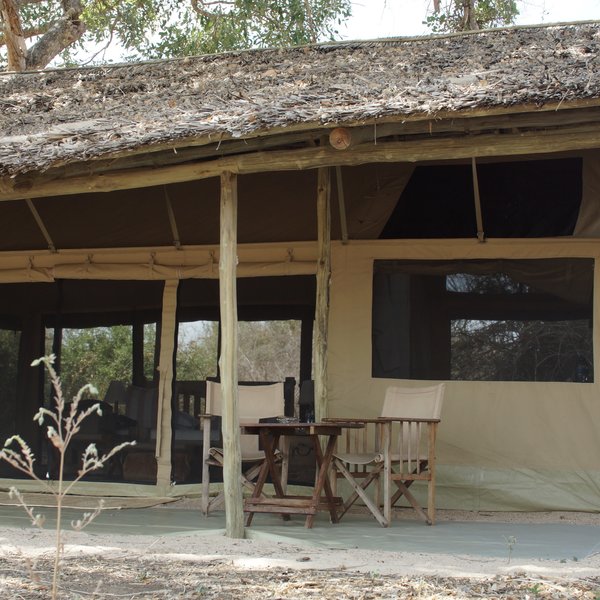
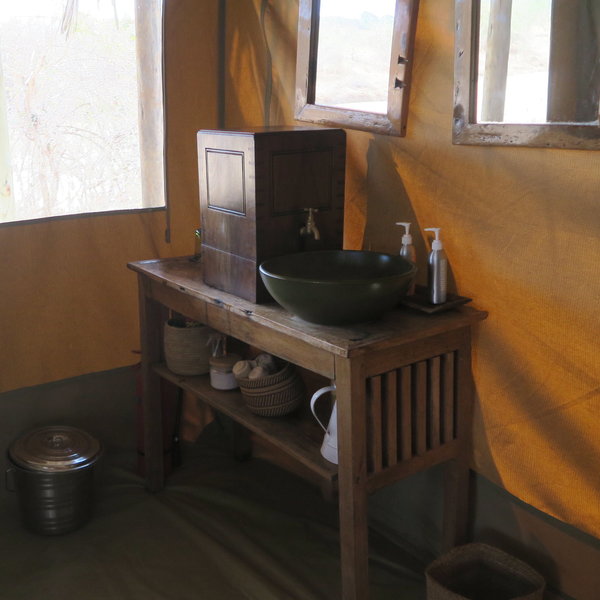
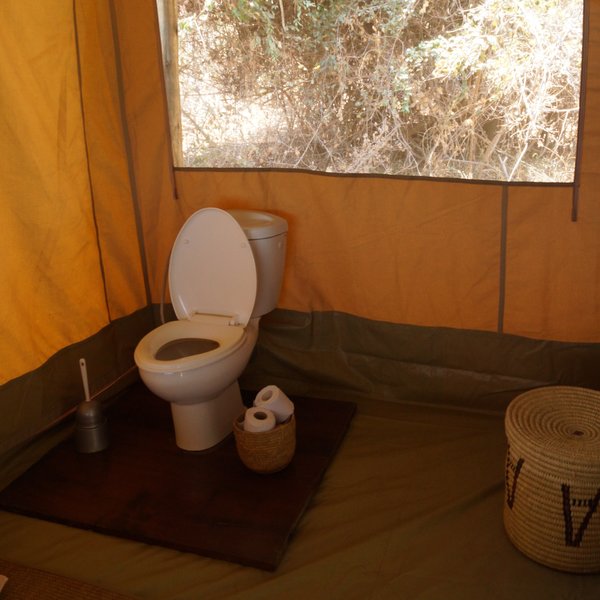
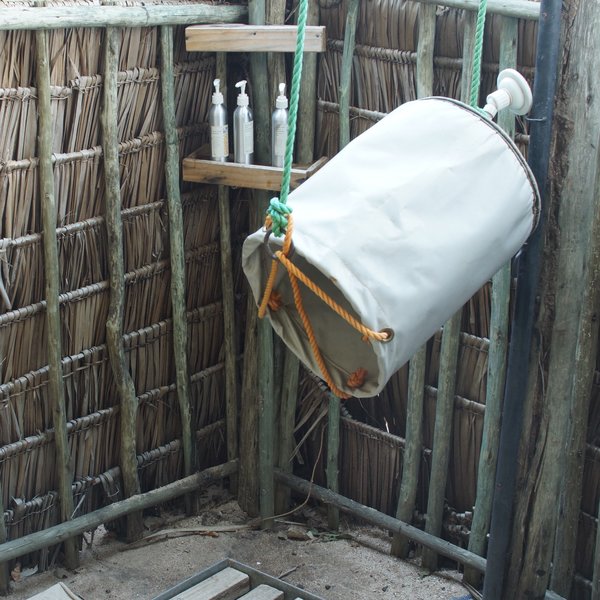
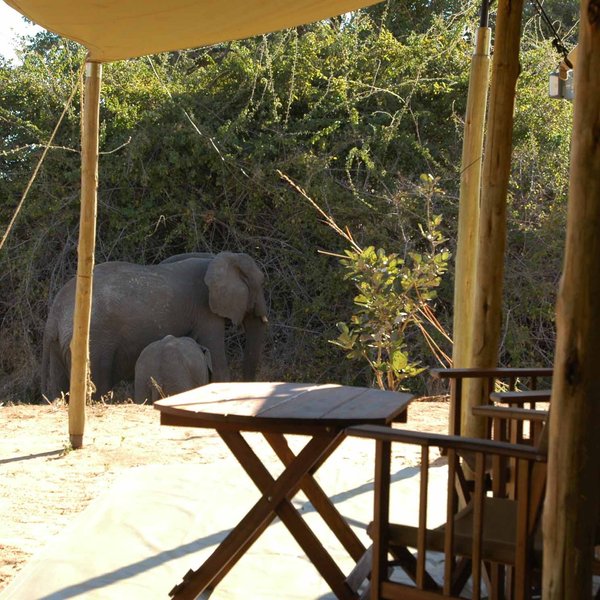
Expert Africa's gallery
When we travel we take lots of photos ourselves to give you a real and un-edited view of the safaris. See our 16 pictures and 2 videos of Kigelia Camp to get the candid view.
View gallerySafaris visiting Kigelia Camp
Just ideas, we'll always tailor-make a trip for you
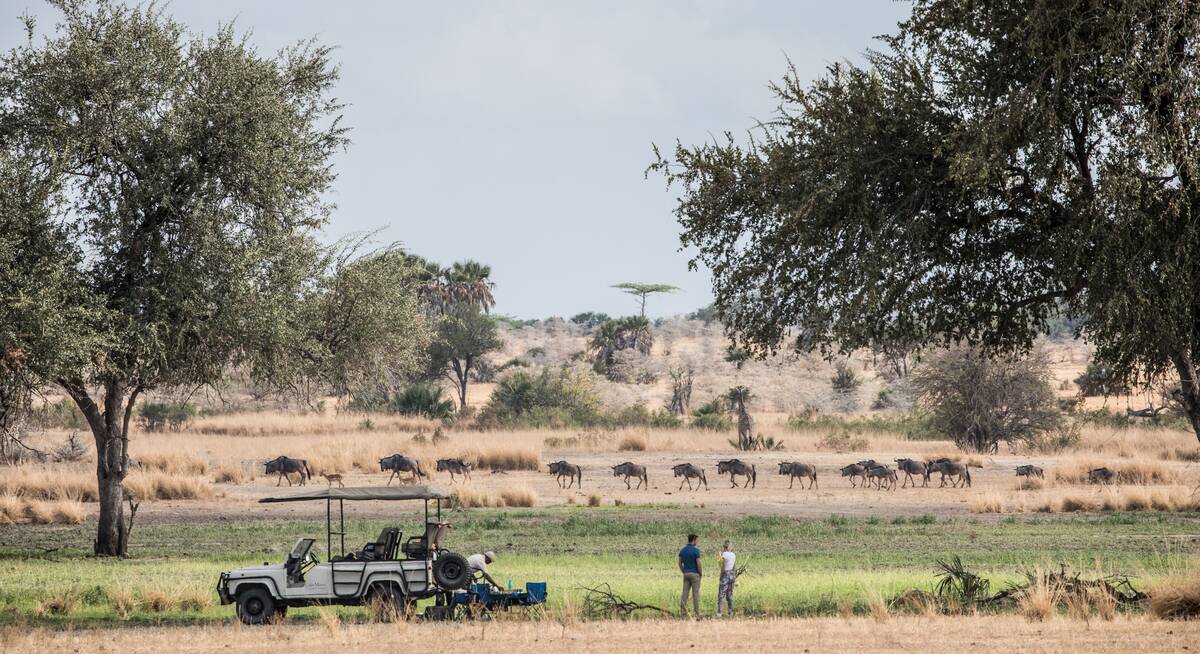
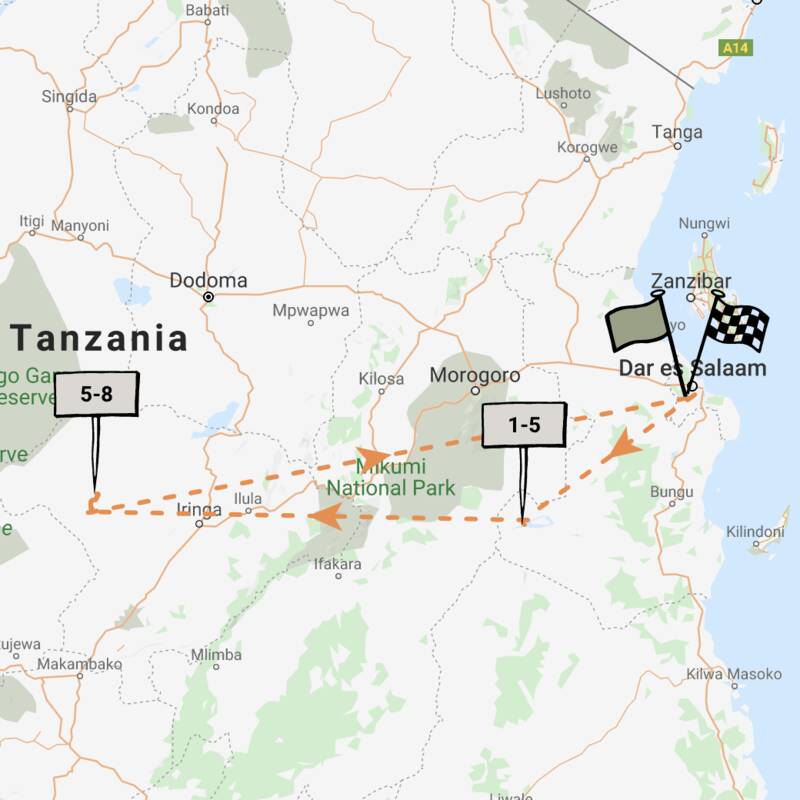
Spotted Hyena Fly-in Safari
7 days • 2 locations • 1 country
DAR ES SALAAM AIRPORT TO DAR ES SALAAM AIRPORT
Stay in one of Nyerere National Park's best safari camps before experiencing a truly authentic tented camp in Ruaha. Remote locations, superb guiding and a range of activities await guests during this comfortable fly-in safari.
Visiting Nyerere, Ruaha
US$6,680 - US$8,660 per person
Kigelia Camp: Our full report
Set on the banks above the Ifuguru sand river in Ruaha National Park, Kigelia is a tented camp that takes ...
... its name from the grove of sausage trees, Kigelia africana, where it nestles. With only six well-positioned tents, the camp aims to blend in with the surrounding bush, causing minimal environmental impact.
Opened in 2008, Kigelia manages to combine the simplicity of a temporary tented camp with the style you would expect from a permanent camp. Take bare groundsheets, safari showers and campfires, then add elegant furniture, plenty of hot water and real flushing loos, and you get a tasteful camp with a real authentic wilderness feel.
Beige canvas has been used for Kigelia Camp's main mess tent. At one end you'll find a lounge area with sides made of mosquito-net screen, making it a cool and breezy place to relax. Inside are a comfy sofa, a couple of chairs and a small wooden table topped with coffee table books. The furniture has a natural and rustic edge to it, with patterned African throws and decoration to add style and a homely feel.
At the other end of the tent is a large sturdy table, where you'll generally eat breakfast and lunch, and sometimes dinner – although this may also be served in one of a number of locations under the stars.
In front of the mess tent, facing the sand river, directors' chairs placed in the shade offer a further place to relax. On the edge of the riverbed, there's a small campfire where pre-dinner drinks are served.
Kigelia Camp's six spacious tents can be booked individually, or the whole camp can be hired out exclusively for eight people or more. The tents are spread out along the riverbank, with tents 1 to 4 north of the main, central area and tents 5 and 6 to the south. Tent #1 is about a 3-minute walk from the main area, and tent #2, the larger family tent, about 2 minutes away. Tent #5 is close to the river and also conveniently close the main area.
In the same beige canvas as the communal areas, the guest tents seem to disappear into the bush. While not over the top in style, they are well designed, with a simple elegance and natural feel. Inside, rush mats dot the bare groundsheets, while natural woods and pale colours lend an understated yet rustic elegance. A comfy, kingsize bed (which can be separated to make two singles), is flanked by bedside tables with solar-powered lights. A large lockable wooden trunk can be used to store valuables.
In each tent is two-way radio, used to request an askari escort after dark, and which also serves to warn of potential hazards. For example, when we last stayed, they called to tell us that a herd of elephant had just entered the camp – and then again to let us know when it was safe to leave the tent.
To one side of the bedroom area you'll find the bathroom, with a curtain which can be pulled across for privacy, and space to store a few clothes. It's a simple set up, consisting of a flushing toilet, a wooden table with a basin, and some jugs of water for washing, or brushing teeth. A couple of small mirrors are hung above the table, and some basic toiletries are provided for convenience. If you unzip the side of the tent you will find an outdoor safari shower so you can wash under the stars. Plenty of hot water can be brought to your tent on request. On our last visit we found the tents clean and well kept, but can get incredibly warm during the afternoon. There is a standing fan in each tent which certainly helps.
Safari activities at Kigelia Camp focus on game drives, but timings are flexible, depending on guests' interests and wishes. Although full-day drives with a packed lunch can be a good way to explore the park, the game is good very near Kigelia itself, so half-day drives are more usual – returning for lunch and a rest in the heat of the day before setting out again in the late afternoon. Kigelia's safari vehicles are very comfortable, with comfortable armchair-style seats, blankets and hot water bottles, and seating a maximum of six. We were highly impressed with the quality of the vehicles, with universal plug sockets and on board fridges.
You can also do night game drives from Kigelia and it is one of the few camps in Ruaha that has a permit for driving after dark. On our drive we clocked up genet, lion, bat-eared fox, elephants, impalas, white-tailed mongoose, porcupine and unusually, an aardwolf which are rarely seen in the area. We returned to camp at around 9.30pm for dinner.
Closer to home, there can be some fascinating sightings straight from the comfort of your tent, with game frequently wandering through and elephants often coming to feed on the vegetation and tap the dry riverbed for water.
Activities
4WD Safari
Birdwatching
Guided walking safari
Hot air ballooning
Night drive
Private activities
Families & children
- Attitude towards children
- The camp welcomes children over the age of 6 years.
- Property’s age restrictions
- No children under 6 years of age are accepted at Kigelia.
- Special activities & services
- There are no special activities or services for children at Kigelia.
- Equipment
- There is no special equipment for children
- Generally recommended for children
- No
- Notes
- Kigelia is a wild camp, and so, like many similar safari camps, we can only recommend it only for mature children, over the age of about 12, with an interest in wildlife. Parents should be aware that their children are their responsibility at all times.
Food & drink
- Usual board basis
- Full Board & Activities
- Food quality
- As with all Nomad properties, we have always found the food to be imaginative and well presented.
Breakfast, usually taken in the main tent, consists of breads, cereals and fruit as well as fresh juice, tea and coffee. If you want to go out on an early morning game drive you will leave early and eat your breakfast in the bush!
During our visits the light two-course lunch consisted of kebabs or quiches with potatoes and salads, followed by a fruit-based dessert.
Dinneron one occasion was three courses, with some bruschetta-style snacks served with our drinks around the fire before hand. To start with we had courgette soup, and the main course was a delicious coconut chicken curry, served with rice, fresh vegetables and mango chutney, followed by chocolate sponge. On another visit, dinner had a Tanzanian theme one night, complete with stiff, polenta-like ugali, a rich beef stew and cabbage. - Dining style
- Mixture of group dining and individual tables
- Dining locations
- Indoor and Outdoor Dining
- Further dining info, including room service
- On request
- Drinks included
- Drinks are included at Kigelia.
Our travellers’ wildlife sightings from Kigelia Camp
Since mid-2018, many of our travellers who stayed at Kigelia Camp have kindly recorded their wildlife sightings and shared them with us. The results are below. Click an animal to see more, and here to see more on our methodology.

100% success

100% success

100% success

93% success

91% success

85% success

82% success

75% success

64% success

33% success

27% success

25% success

18% success

13% success

0% success

0% success
Getting there
- Location
- Ruaha National Park, Tanzania
- Ideal length of stay
- 4 nights
- Directions
- Kigelia is a 2½-hour flight from Dar es Salaam, followed by a drive of about 45 minutes to an hour to the camp itself.
- Accessible by
- Fly-and-Transfer
Special interests
- Cultural Experiences
- Guests take a half day visit out of the park to Tungamalenga Village, where the Nomad Trust supports the local school and clinic with basic educational and medical supplies, as well as outreach programs.
- See ideas for Cultural Experiences in Tanzania
Sustainability
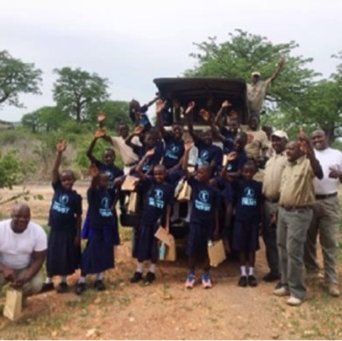
The Ruaha Carnivore Project
Being located within the great Ruaha National Park, Kigelia Ruaha ensures that sustainability remains important to the lodge. The Ruaha Carnivore Project (RCP), a main issue supported by the lodge is an Oxford University-led project aimed at protecting many of the remaining wild lions in Africa. Through RCP, Kigelia works with the local community in many ways, such as the education of conservation through village film nights, using GPS collars to track lions, as well as aiding local herdsman by building predator-proof enclosures. These efforts help to mitigate the human-wildlife conflict, with the goal of creating a safe environment for all. Visits for those interested in finding out more about the project can be arranged.
In Tungamalenga, the local school and clinic are benefiting from outreach programs, as well as provision of educational and medical supplies. Outreach programs for children include safari trips, aimed at instilling a passion for conserving the local environment and the nearby wildlife. Guests are welcome to visit the village, where they can experience rural village life, and are encouraged to support the village school through the provision of school supplies, as well as baby clothes and bed sheets for the clinic.
See more great sustainability projects in Tanzania
Communications
- Power supply notes
- The camp uses a combination of solar power and generator (switched on when guests are out of camp). The lights in the tent work 24 hours a day. There are charging points in the tent.
- Communications
- There is intermittent mobile reception throughout Ruaha (Vodacom and Airtel). WiFi can be made available in the managers office if guests need to check in for flights etc.
- TV & radio
- There is no TV for guests at Kigelia Camp, however the staff have a TV and guests are welcome to join them when a big game is on.
- Water supply
- Other
- Water supply notes
- Plenty of drinking water is provided.
Health & safety
- Malarial protection recommended
- Yes
- Medical care
- There is a first-aid kit in all of the safari vehicles as well as in the main area of the camp. Kigelia are linked to Tanzania's flying-doctor service and all of the guides have first aid training.
- Dangerous animals
- High Risk
- Security measures
- Guests are escorted to their tents after dark.
- Fire safety
- The riverbed at Kigelia acts as a natural firebreak, and the staff are all well trained in fire drills. Fire extinguishers are located in the kitchen and in all vehicles.
Useful info
- Disabled access
- Not Possible
- Laundry facilities
- Full laundry service is included, excluding underwear for cultural reasons. Washing powder is provided in the rooms for these items.
- Money
- The rooms have lockable trunks for storing valuables - a very practical solution to securing bulkier items that you'd rather not leaving lying around.
- Accepted payment on location
- Everything is included in the rates so you shouldn’t need to pay for anything extra. Tips can be left in US dollars or Tanzanian shillings. There are no credit card facilities.
Plan and book your trip with Expert Africa
All of our trips are tailor-made, so we'll always adapt them to suit you. Talk to an Expert and let us plan and arrange your perfect trip.

Talk to an Expert
Call or email us now! We’ll match you with the Specialist in our team who is best suited to help you. Then together we can start planning your trip.

Set up your itinerary
Based on our experience and your ideas, your specialist will create a detailed, costed itinerary. We’ll refine it together, until we have a trip that you’re perfectly happy with.

Prepare for your trip
The same Specialist will make the seamless arrangements for your trip, send you detailed travel documents, and be available to answer any questions before you depart.

Travel with peace of mind
After you set off, you’ll be cared for by our partners in Africa, most of whom have worked with Expert Africa for decades. And if you ever need us urgently, we’re available 24/7.

When you return
We love to learn about your trip, and so will always be grateful if you’ve the time to give feedback to your Specialist when you return.
Kigelia Camp's location
Look closer at the environment and surroundings of Kigelia Camp.
Excursions from Kigelia Camp
Optional extra day-trips and excursions possible whilst you're staying at Kigelia Camp. Talk to us: these are usually best arranged before you go.
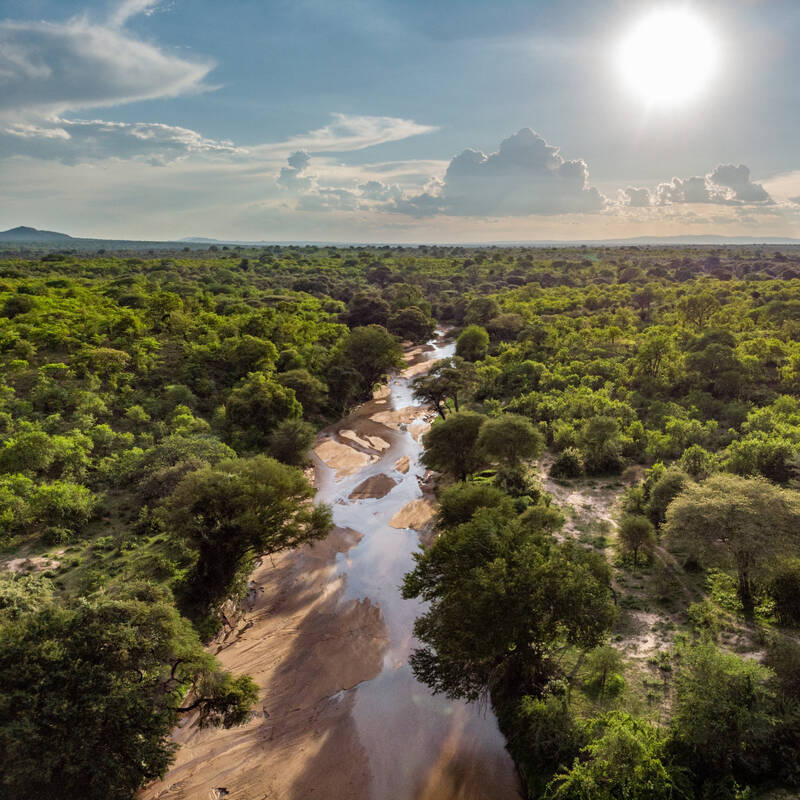
Balloon Safari over Ruaha
Three hours - one hour flight
Varied and scenically stunning, Ruaha National Park features rolling hills, woodlands, open plains and two wide meandering rivers: the Ruaha and the Mwagusi. What better way to view it than from the air, at sunrise? A balloon safari offers just this, the landscape unfolding below your basket as you float almost silently above.
More about Ballooning in RuahaOther lodges in Ruaha National Park
Alternative places to stay in this same area.
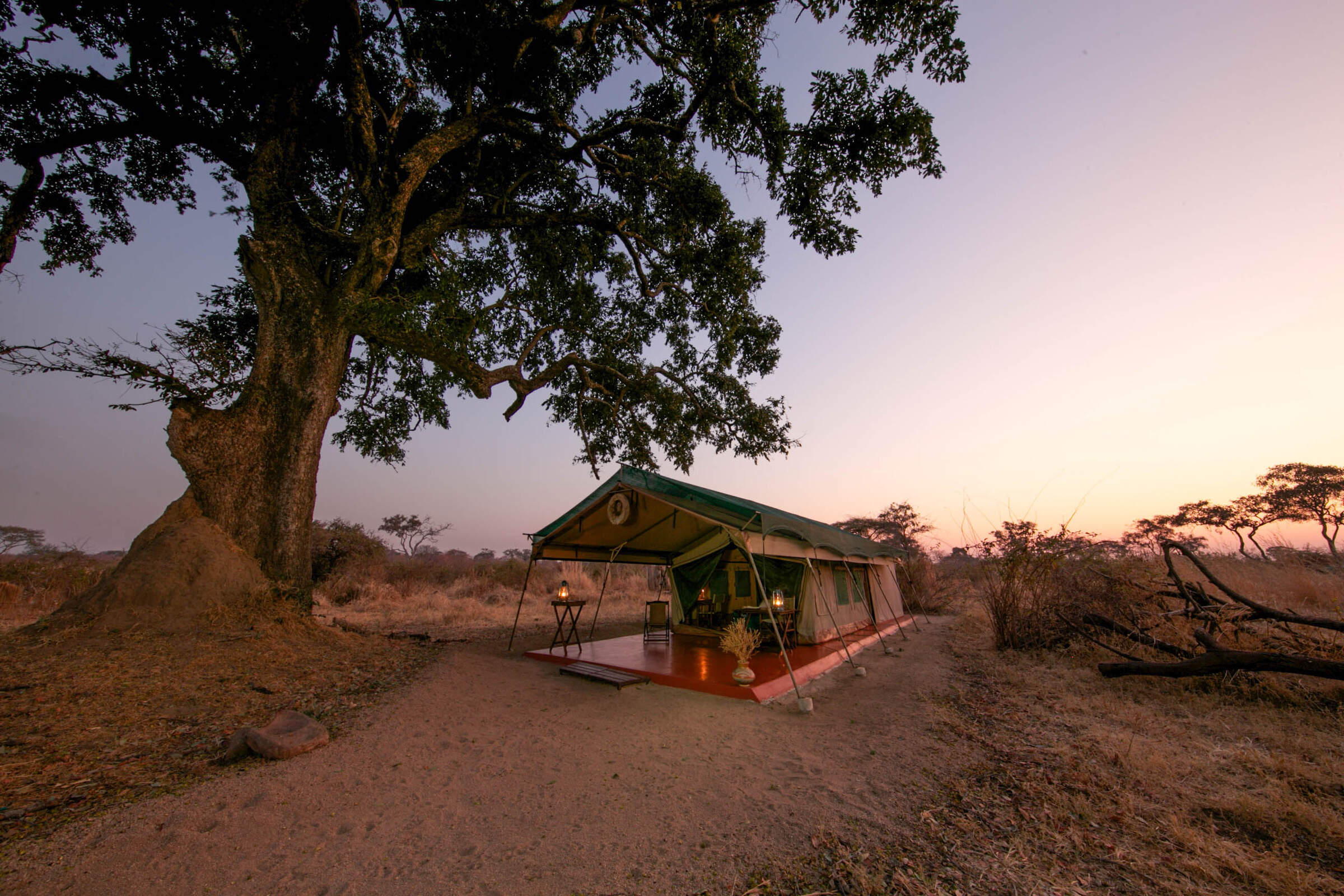
Mdonya Old River Camp
Designed with simplicity in mind, Mdonya River Camp focuses on a great wilderness experience rather than creature comforts.
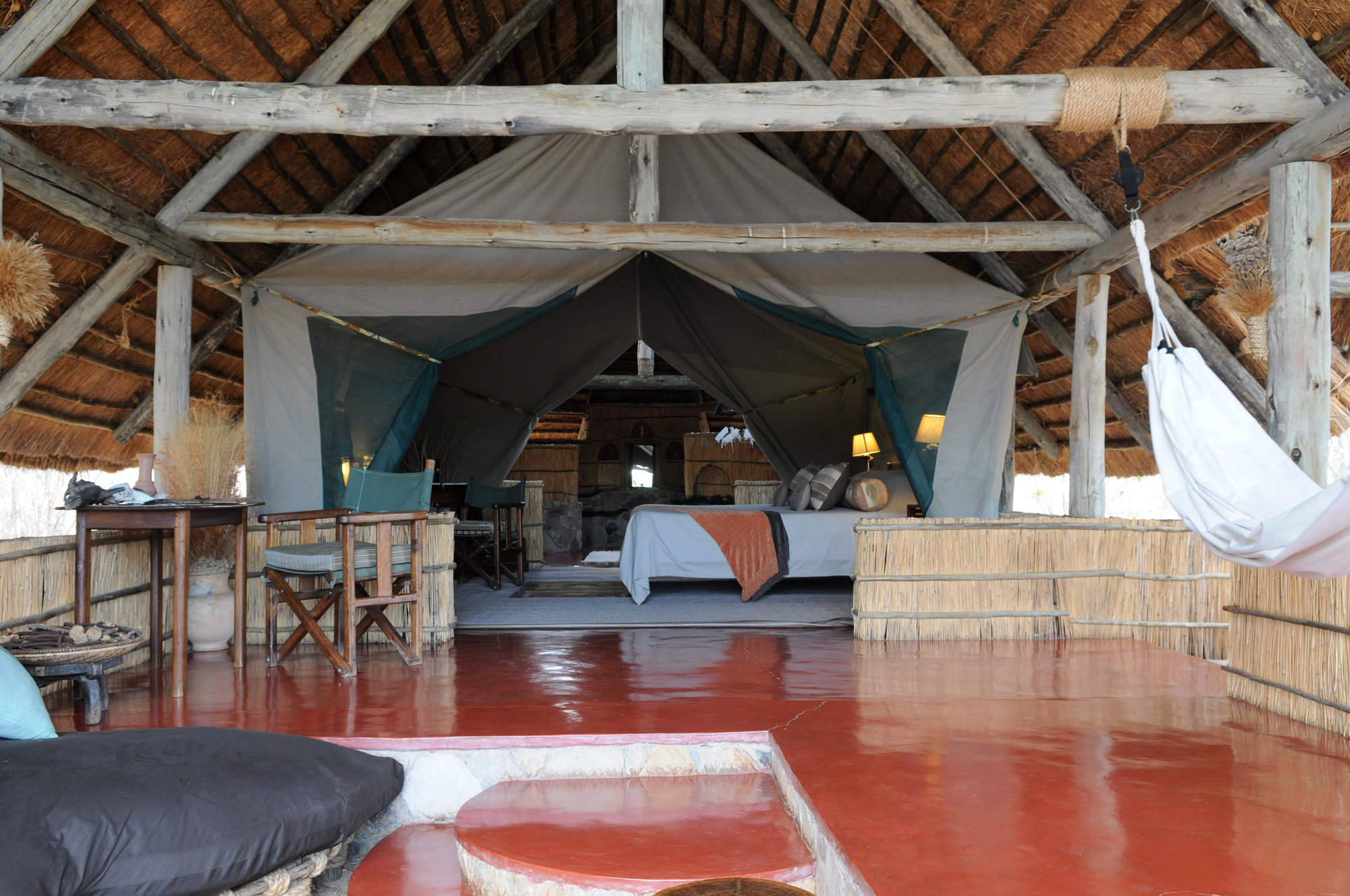
Mwagusi Safari Camp
Mwagusi is a long-established, permanent, tented safari camp, on an attractive bend of the seasonal Mwagusi River.
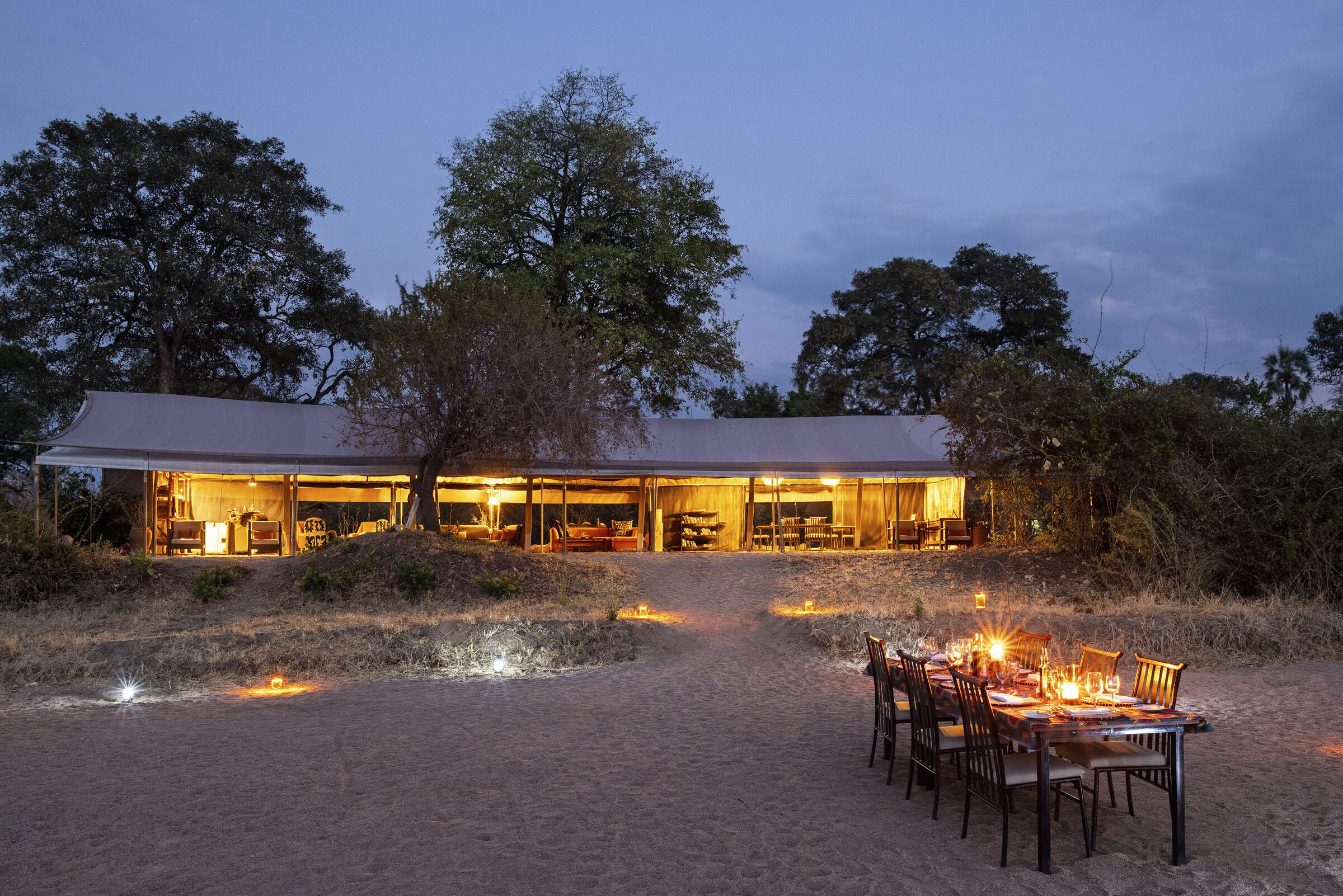
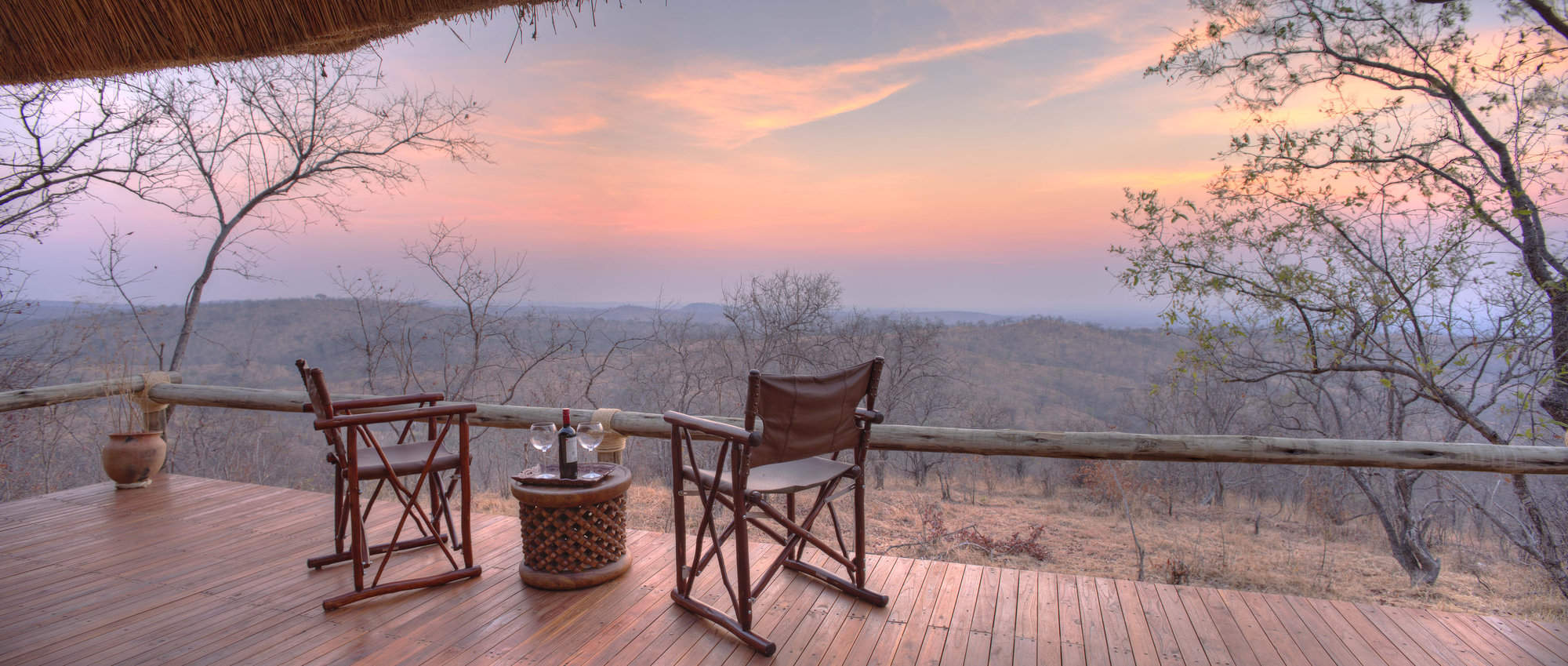
Ikuka Safari Camp
Upmarket and stylish, Ikuka Safari Camp is set high on an escarpment with spectacular panoramic views over Ruaha National Park.
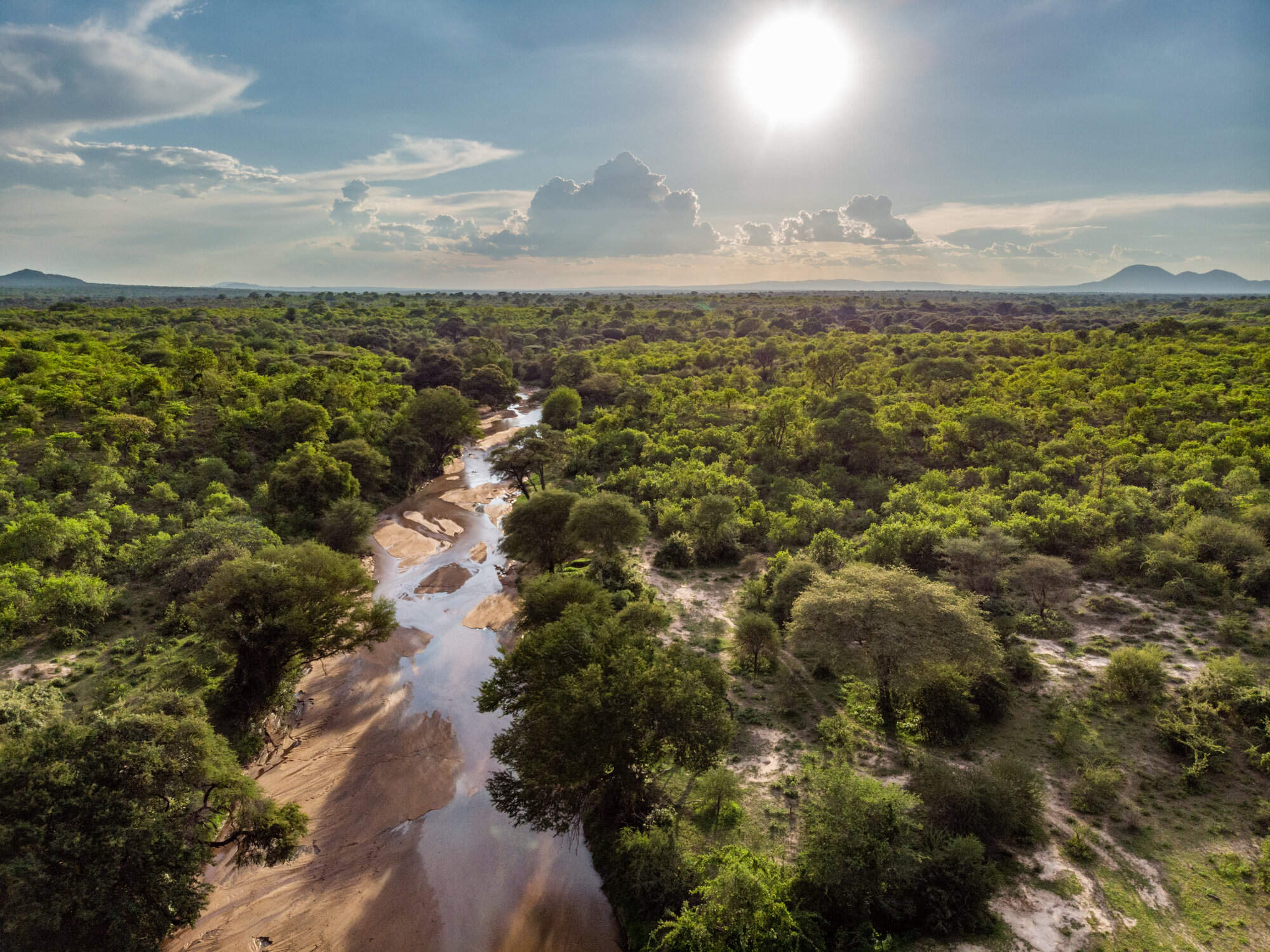
Jongomero Camp
A stylish and luxurious camp in a remote part of Ruaha, Jongomero offers excellent guiding and service in a remote, wilderness area.
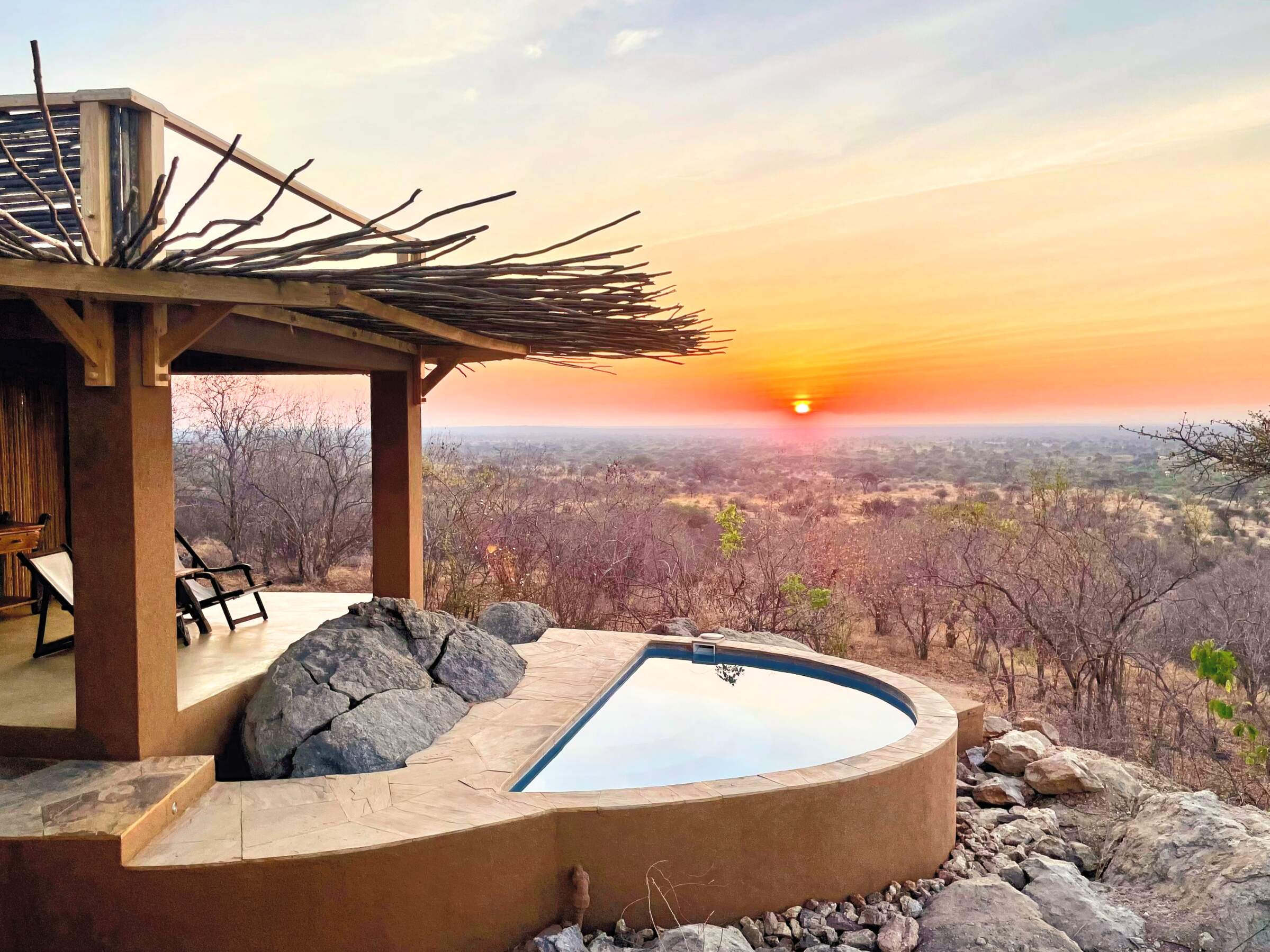
Kichaka Zumbua
Kichaka Zumbua is a small, luxurious camp offering on outstanding walking safaris in a remote area of Ruaha.
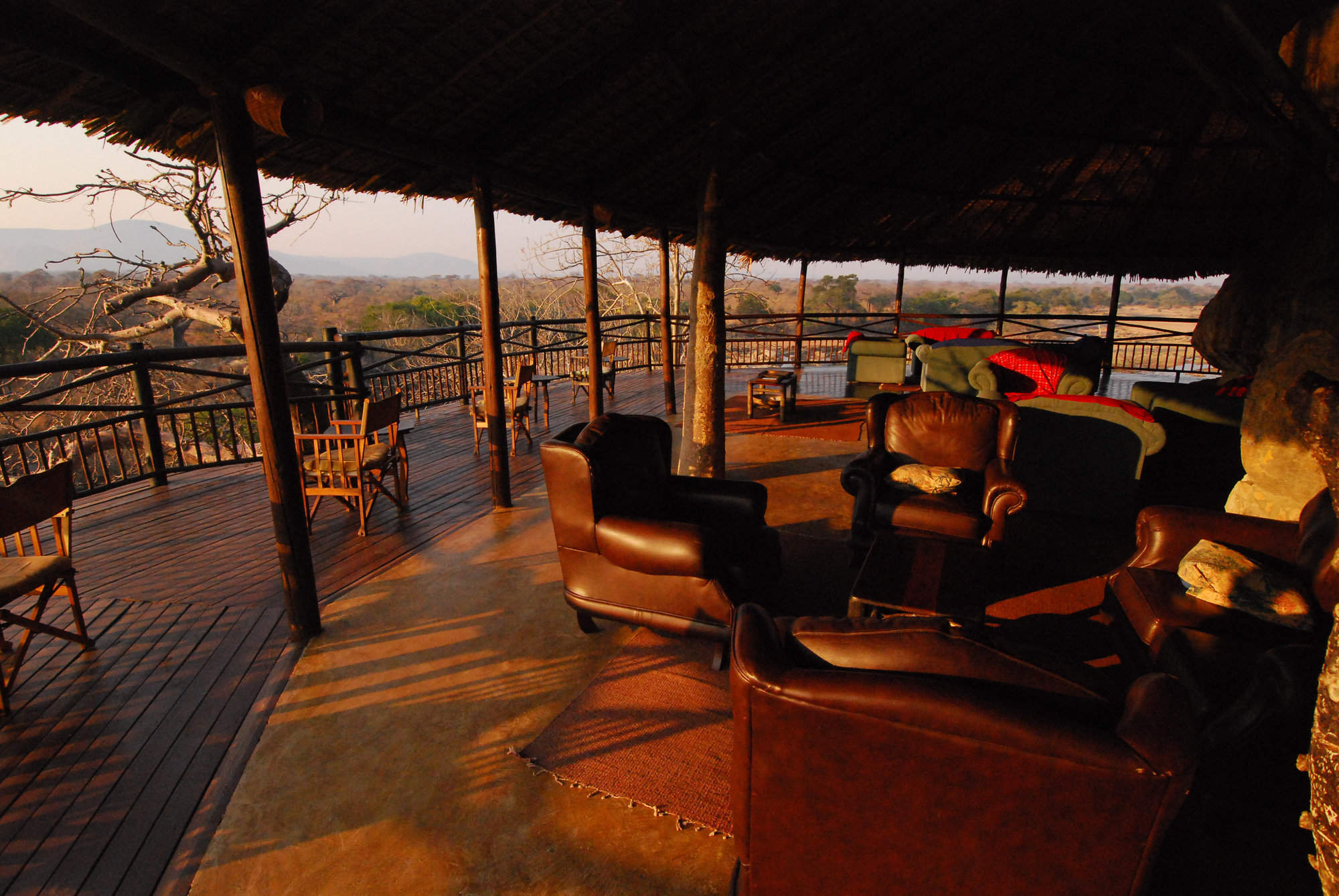
Ruaha River Lodge
In a lovely location beside a rocky river, the unpretentious Ruaha River Lodge is the largest and most economical camp in Ruaha National Park.
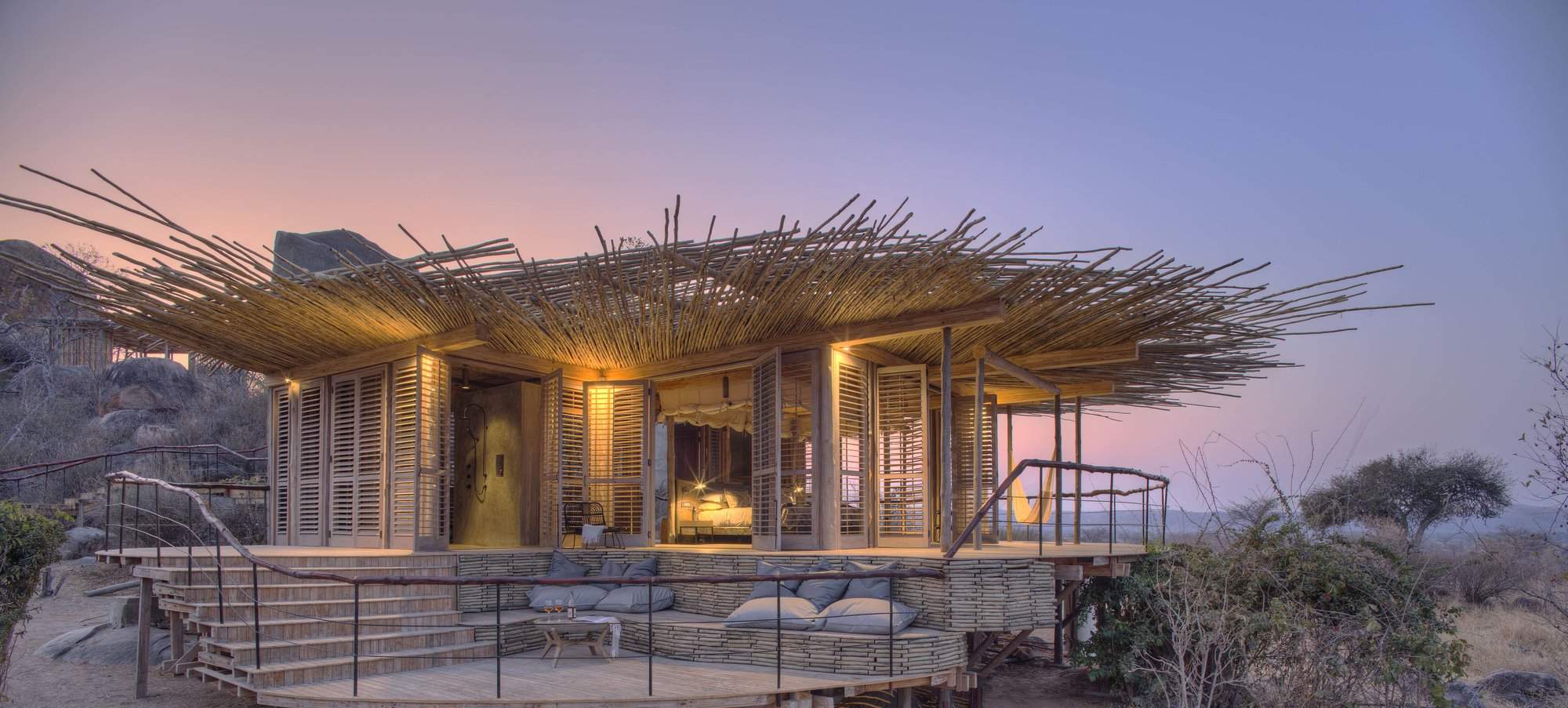
Jabali Ridge
One of Ruaha's most luxurious camps, Jabali Ridge nestles among kopjes and baobabs, with beautiful views of the surrounding area.
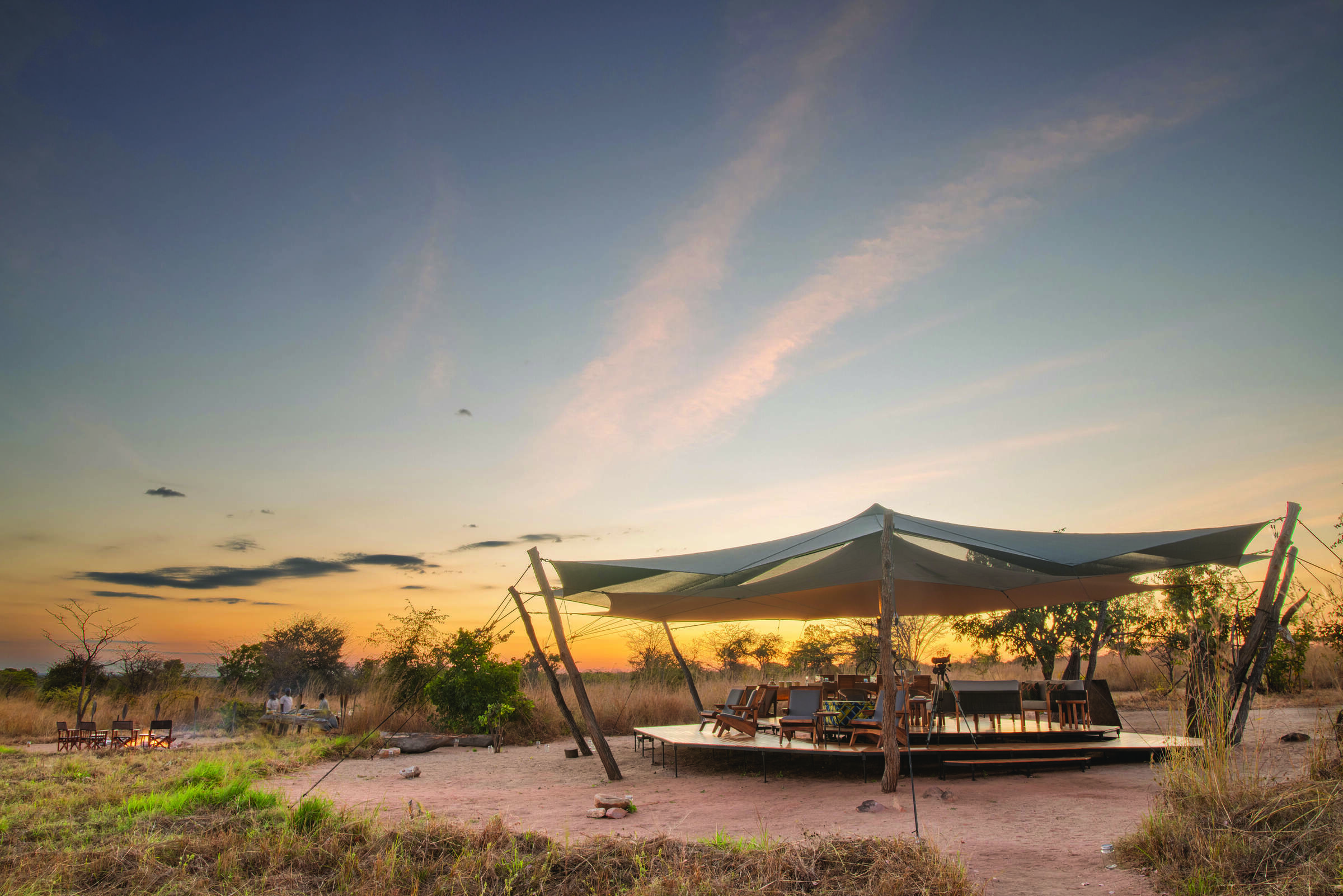
Usangu Expedition Camp
Usangu Expedition Camp is a seasonal camp in the Usangu Wetlands – a remote and enchanting part of Ruaha National Park.
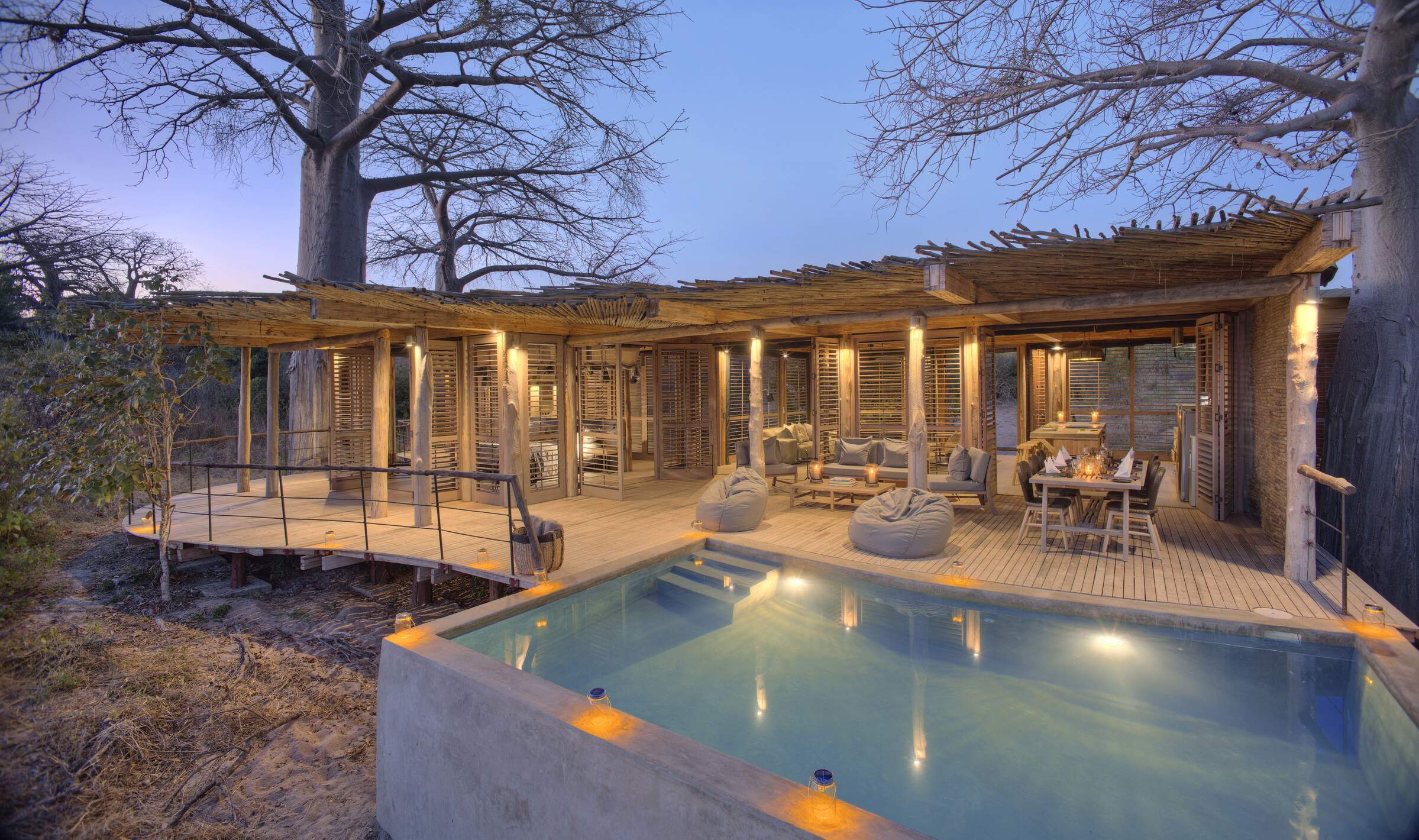
Jabali Private House
Jabali Private House in Ruaha National Park provides luxurious accommodation for private groups booked on an exclusive basis.
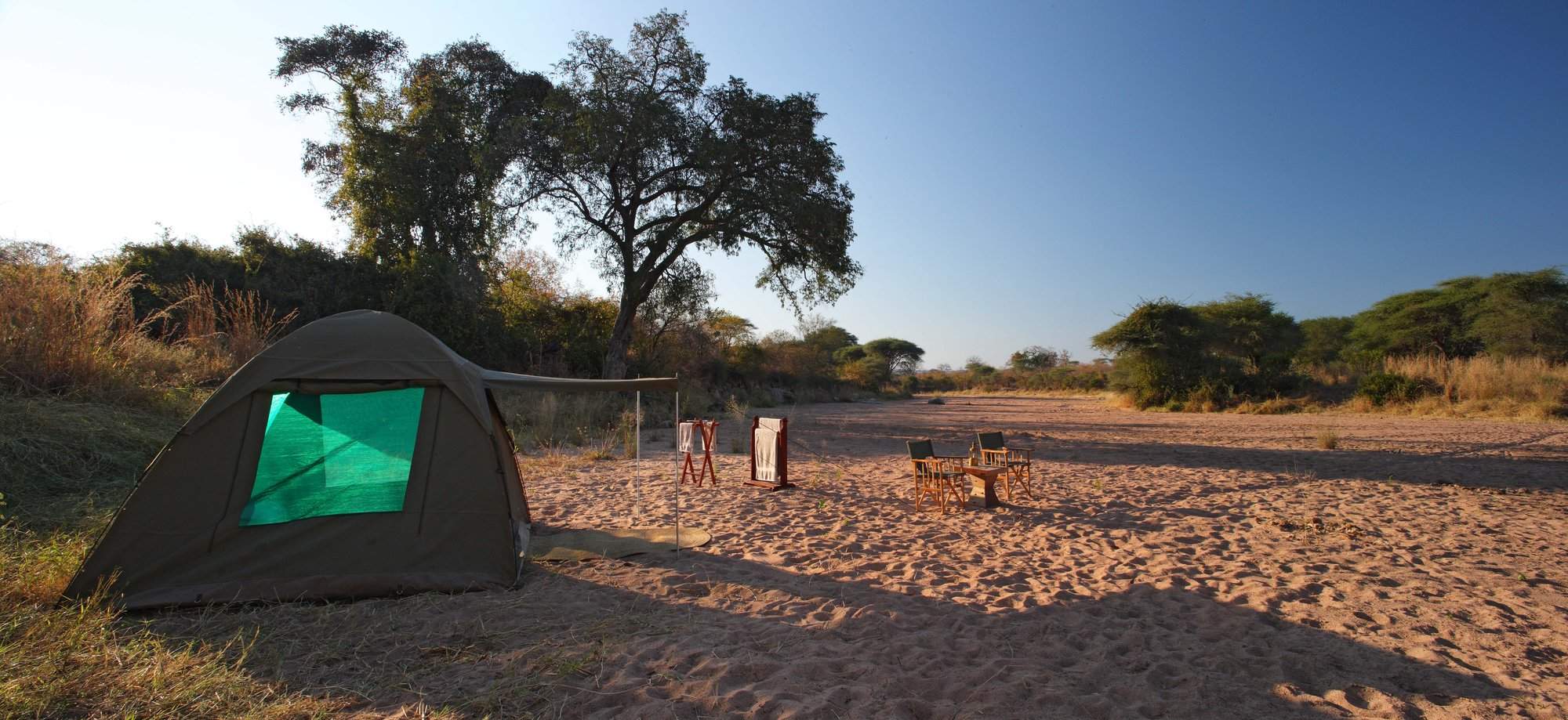
Jongomero Walking
Fly-camping and walking safaris from Jongomero Camp give you the chance to explore remote safari areas in Ruaha National Park.
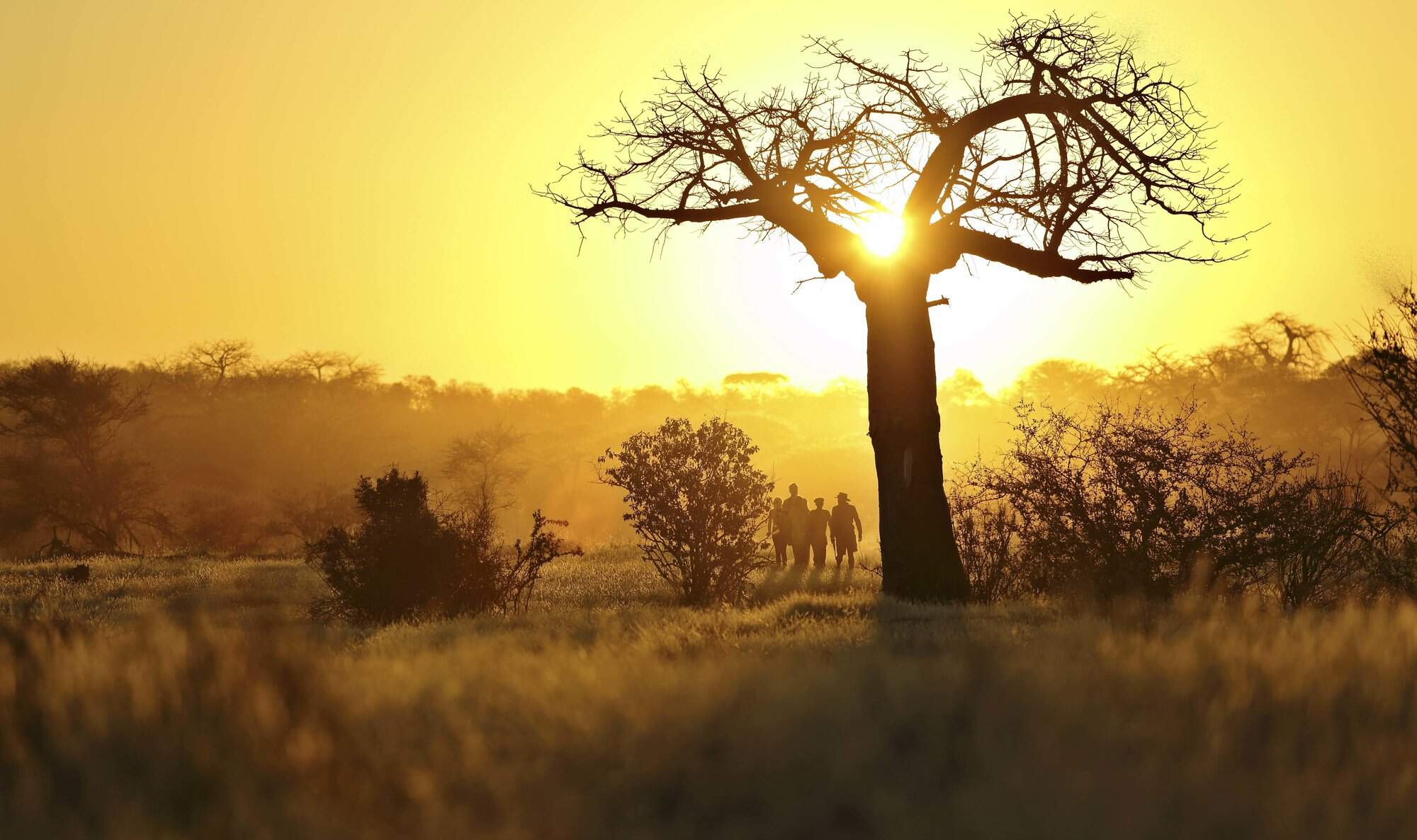
Asanja Ruaha
Asanja Ruaha Ndembo is a smart new safari lodge in a picturesque setting overlooking the Great Ruaha River.
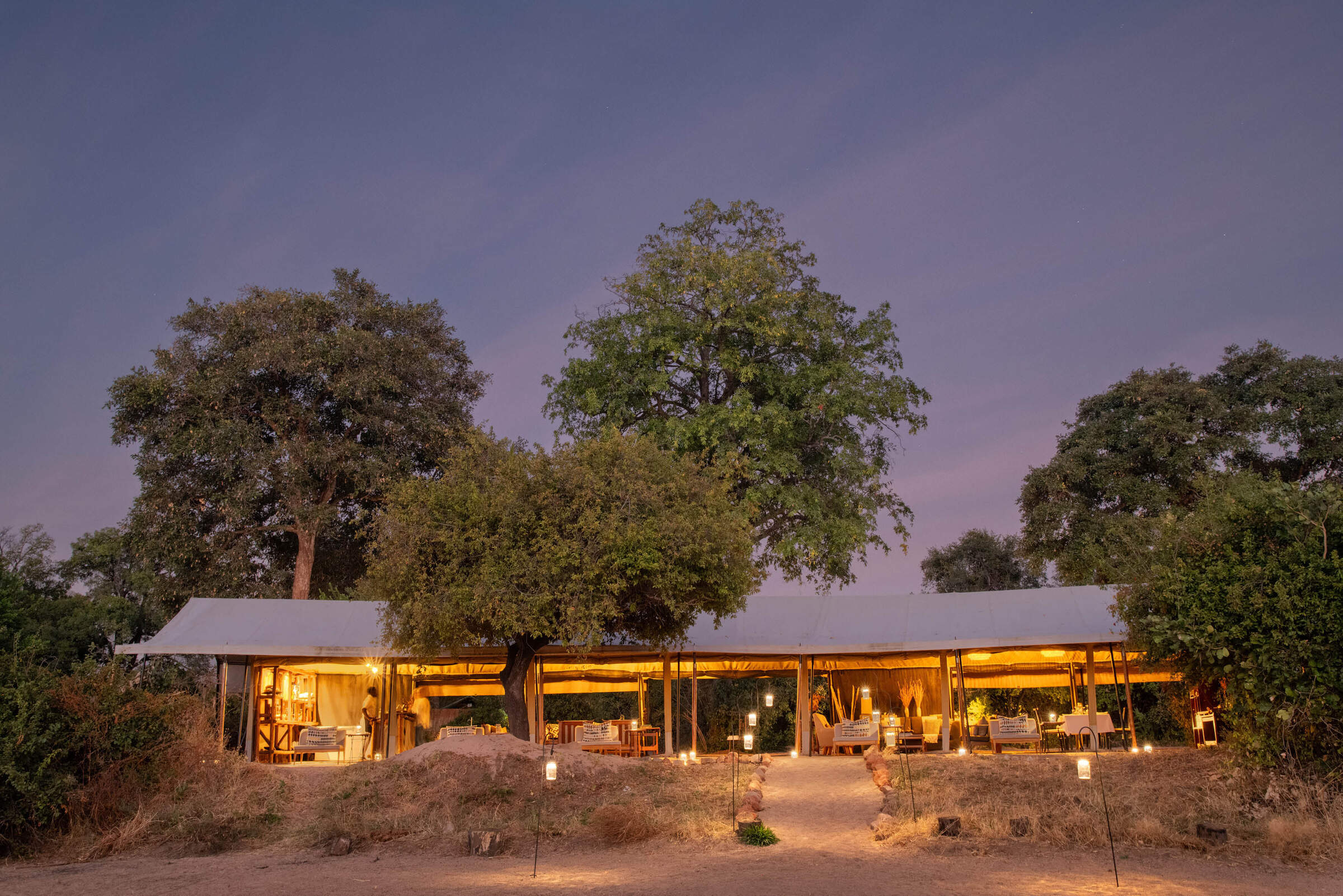
When to go to Ruaha National Park
Our month by month guide: What it's like to visit Kigelia Camp in Ruaha National Park
Jan
Feb
Mar
Apr
May
Jun
Jul
Aug
Sep
Oct
Nov
Dec
Ruaha National Park in January
In January, clear skies and sunshine prevail, with temperatures rising and rain showers not uncommon. This period is excellent for birdwatching, as resident birds enter breeding plumage and migrant species arrive. The Usangu wetlands teem with avian activity. After the end of the festive period, January offers great value and quiet park conditions. However, wildlife may be more dispersed in areas like Mwagusi.
The baobab-dotted landscape provides stunning backdrops for photography. Visitors can enjoy game drives along the river, spotting elephants, buffaloes, and various antelope species. Walking safaris offer intimate encounters with smaller creatures and flora.
- Variable weather: dry, cloudy, or rainy
- Occasional thunderstorms may occur
- Good time for birding, many migrant species
- Wildlife dispersed due to available water
Our view
A good time to visit, with pros & cons
Weather in January
Ruaha National Park in February
February in Ruaha is one of the hottest months, with temperatures reaching around 33°C/91°F. The short dry season continues, making it an excellent time for wildlife viewing around the Great Ruaha River and remaining water sources. There are few tourists in the park at this time, and lodge rates are lower.
This month is particularly rewarding for birdlife as northern hemisphere migrants join resident species in the Usangu wetlands and along the river banks. The Mwagusi area is prime for lion spotting, while the rolling hills and rocky escarpments offer breathtaking vistas. Visitors can enjoy bush picnics and guided walks to explore the diverse flora.
- Hot and dry weather in Ruaha
- Wildlife congregating around water sources
- Excellent game viewing opportunities
- Lush and green landscapes after rains
- Fewer tourists, more intimate safari experience
Our view
A very good time to visit
Weather in February
Ruaha National Park in March
The Great Ruaha River swells, attracting diverse wildlife. This is an excellent time to visit as the vegetation becomes lush and vibrant. Cat sightings may be infrequent, but birdwatching remains exceptional, especially around the Usangu wetlands.
Many camps begin to wind down operations, but those remaining open offer great value. The rains transform the landscape, with baobabs and acacias in full bloom. Walking safaris may be limited, but game drives can reveal unique sightings of animals in their rain-season behaviours.
- Hot with building humidity before rains
- Wildlife viewing variable
- Park is quiet with lower visitor numbers
- Good time for birding in Ruaha
- Green landscapes offer scenic photography
Our view
A good time to visit, with pros & cons
Weather in March
Ruaha National Park in April
April is the wettest month in Ruaha, with an average of 250mm of rain. The park's ecosystem thrives, with the Great Ruaha River and surrounding areas lush and teeming with life. This period is excellent for observing smaller creatures, insects, and birds.
Many of the lodges in the park will close, but a handful remain open, offering significant discounts. Visitor numbers are very low, but this is an ideal time for photographers capturing the park's verdant beauty and for those interested in the park's diverse flora. While big game viewing becomes more challenging due to dense vegetation, patient observers can be rewarded with unique sightings.
- Heavy rains expected, dramatic thunderstorms
- Some camps may close due to accessibility
- Lush vegetation, wildlife more dispersed
- Lowest visitor numbers and rates all year
- Challenging time for game viewing
Our view
This is not a great time to visit
Weather in April
Ruaha National Park in May
As May progresses in Ruaha, temperatures start to drop slightly, and the rains begin to clear. The Great Ruaha River and other water sources remain full, supporting a wide range of wildlife. This transitional period offers a unique blend of lush landscapes and improving game viewing conditions. Herbivores begin to congregate as the land starts to dry.
Visitor numbers and lodge rates remain low, providing excellent value. This is an excellent time to explore the park's diverse habitats, from riverine areas to the baobab-studded savannas.
- Rains continue, creating dramatic skies
- Quiet period with few other tourists
- Lush green landscapes throughout the park
- Wildlife dispersed, fewer sightings
- Lower prices make safaris more affordable
Our view
This is not a great time to visit
Weather in May
Ruaha National Park in June
June marks the end of the rainy season in Ruaha, with wildlife starting to concentrate around perennial water sources like the Great Ruaha River. The landscape begins to dry, but many areas remain green. This is the start of the shoulder season, with camps reopening and offering good value.
Game viewing improves as the month progresses, particularly around the river and remaining water holes. The Mwagusi area becomes excellent for predator sightings. Walking safaris and fly-camping options increase as the terrain dries. The Usangu wetlands continue to offer excellent birdwatching opportunities. Visitors can enjoy spectacular sunsets over the baobab-dotted landscape.
- Variable weather: dry, cloudy, or some rain
- Wildlife starting to gather near water sources
- Park becoming less green, easier viewing
- Good value with shoulder season prices
- Moderate visitor numbers
Our view
A good time to visit, with pros & cons
Weather in June
Ruaha National Park in July
July in Ruaha National Park marks the beginning of the peak season. With no rainfall expected and pleasant daytime temperatures, it's an ideal time for safaris. The Great Ruaha River becomes a lifeline for wildlife, offering excellent game viewing opportunities. As the park dries, animals congregate in fewer areas, making sightings more frequent and spectacular. The Mwagusi area is particularly good for lion sightings. There is also increased chances of seeing cheetah and wild dog.
Walking safaris are at their best, allowing close encounters with the park's flora and smaller fauna. The rolling hills and rocky escarpments provide stunning backdrops for photography. Birdwatching remains excellent, especially around the remaining water sources. Night drives offer chances to see nocturnal species. Seasonal balloon safaris become available.
- Dry and warm days, cool mornings/evenings
- Excellent wildlife viewing as water diminishes
- Popular time with higher visitor numbers
- Peak season prices due to prime conditions
- Seasonal balloon safaris commence
Our view
Fantastic: the very best time to visit
Weather in July
Ruaha National Park in August
August is the heart of the dry season in Ruaha, characterised by clear skies and sunny weather. Nighttime temperatures can be cool, so layered clothing is recommended for early morning game drives. The Great Ruaha River and other permanent water sources attract large concentrations of wildlife, offering excellent viewing opportunities. The Mwagusi and Usangu areas are particularly rewarding for game viewing, and this is traditionally a good time of year for cat sightings.
The iconic baobab trees stand out starkly against the dry landscape. Walking safaris and bush picnics are at their best.
- Dry weather, cool mornings and evenings
- Superb wildlife viewing around water sources
- Busy season with many visitors in Ruaha
- Book early as camps fill up quickly
- Great time for predator sightings
Our view
Fantastic: the very best time to visit
Weather in August
Ruaha National Park in September
September is an excellent month to visit Ruaha. As the dry season peaks, wildlife becomes increasingly concentrated around remaining water sources, particularly the Great Ruaha River. This leads to high densities of animals and frequent predator sightings, especially in the Mwagusi area. The landscape is starkly beautiful, with baobabs and dry savanna dominating.
This is an ideal time for walking safaris and night drives. Birdwatching remains rewarding, especially around the shrinking water bodies. The Usangu wetlands, though diminished, still attract diverse birdlife.
- Fantastic wildlife viewing opportunities
- Parks slightly less busy than peak months
- Very dry conditions, sparse vegetation
- Cool mornings, warm days in Ruaha
- High season prices still in effect
Our view
Fantastic: the very best time to visit
Weather in September
Ruaha National Park in October
October in Ruaha marks the end of the dry season, offering some of the best wildlife viewing opportunities. The Great Ruaha River and remaining water holes attract large concentrations of animals, making for spectacular game drives. Elephant sightings are particularly frequent during this time.
The landscape is at its driest, creating a striking backdrop for photography, though it can be dusty. Predator sightings, especially of lions and leopards, are common in areas like Mwagusi. Walking safaris provide intimate wildlife encounters. Birdwatching remains excellent as migratory species begin to arrive. There's a chance of early rains towards the end of the month, bringing relief to the parched landscape. Balloon safaris operate until the end of October.
- Mostly dry with comfortable temperatures
- Excellent game viewing, especially around rivers
- Landscape can appear barren and dusty
- Lower visitor numbers than earlier months
- Chance of dramatic storms towards month-end
Our view
A very good time to visit
Weather in October
Ruaha National Park in November
November usually sees the start of the rains in Ruaha, though the timing varies yearly. Game viewing is very dependent on the rains. The landscape begins to transform, with new growth appearing. This is an excellent time for birdwatching as migratory species arrive in the Usangu wetlands and other areas. Most camps remain open, offering shoulder season rates and good value.
Early November can be particularly rewarding, combining late dry season wildlife concentrations with the first rains. The large buffalo herds tend to move up onto the escarpment. Walking safaris may be possible depending on conditions. The baobab trees start to leaf, creating a beautiful contrast with the dry landscape.
- Variable weather: dry, cloudy, or rainy
- Park relatively quiet, lower-end prices
- Good wildlife sightings before rains disperse
- Some camps may close for maintenance
- Unpredictable conditions
Our view
A good time to visit, with pros & cons
Weather in November
Ruaha National Park in December
December is a quiet time to visit the park. Game viewing is good, with animals still relatively concentrated. The landscape is a mix of dry areas and new growth, creating diverse habitats. Birdwatching is excellent, with both resident and migratory species present in abundance, especially in the Usangu wetlands. The festive period can be busy, so early booking is essential.
Outside the holiday season, December offers great value with shoulder season rates. Temperatures are pleasant, averaging around 27°C/81°F, with occasional thunderstorms adding drama to the landscape. Walking safaris (weather permitting) and night drives provide varied wildlife experiences.
- Variable weather with possible thunderstorms
- Good game viewing in Ruaha's core areas
- Very quiet early, becoming busier later
- Prices low early, rising significantly later
- Green vegetation starting to return
Our view
A good time to visit, with pros & cons
Weather in December

Looking for inspiration on where to travel next?
Visit our trip chooser to explore your options and find inspiration for your perfect African adventure
Inspire me